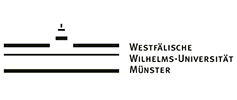Affirmative Action Study on the Political Rights of Women in the Indonesian Constitution
Abstract
Keywords
Full Text:
PDFReferences
Abbott, Pamela and Dixon Malunda. “The Promise and the Reality: Women’s Rights in Rwanda.” African Journal of International and Comparative Law 2, no. 4 (November 2016).
Anderson, Terry H. The Pursuit of Fairness: A History of Affirmative Action. New York: Oxford University Press, 2004.
Aspinall, Edward, Sally White and Amalinda Savirani. “Women’s Political Representation in Indonesia: Who Wins and How?” Journal of Current Southeast Asian Affairs 40, no. 1 (May 2021).
Bacchi, Carol Lee. The Politics of Affirmative Action: Women Equality and Category Politics. London: Sage Publications, 1996.
BBC News. “Pemilu: Jumlah Caleg Perempuan terus Meningkat, Tapi Mengapa 30% Belum Pernah Tercapai?” [Election: The Number of Women Candidates Continues to Increase, However, Why Has 30% Never Been Achieved.] BBC News Indonesia, April 1, 2019. Last accessed September 28, 2021. https:// www.bbc.com/indonesia/indonesia-47734333.
Bennett, Elizabeth. “Rwanda Strides towards Gender Equality in Government.” Kennedy School Review, published August 15, 2014. https://ksr.hkspublications. org/2014/08/15/rwanda-strides-towards-gender-equality-in-government/.
Commission on Security and Cooperation in Europe. “Citizenship and Political Rights.” Accessed November 20, 2021. https://www.csce.gov/issue/citizenship- and-political-rights.
Davidson-Schmich, Louise K. "Implementation of political party gender quotas: Evidence from the German Länder 1990-2000." Party Politics 12, no. 2 (March 2006).
Division for the Advancement of Women. “Equal Participation of Women and Men in Decision-Making Processes with Particular Emphasis on Political Participation and Leadership.” United Nations Department of Economic and Social Affairs (DESA), 2005.
Freidenvall, Lenita. “Women’s Political Representation and Gender Quotas – the Swedish Case”. Working Paper Series – The Research program on Gender Quotas. (2003).
Fullinwider, Robert. “Affirmative Action.” The Stanford Encyclopedia of Philosophy. Summer 2018 Edition. February 18 2021. Last accessed May 28, 2021. https:// plato.stanford.edu/cgi-bin/encyclopedia/archinfo.cgi?entry=affirmative- action.
Gerintya, Scholastica. “Kuota 30% Perempuan di Parlemen Belum Pernah Tercapai.” [The 30% Quota of Women in Parliament Has Never Been Reached] Tirto.ID, September 7, 2017. Last accessed May 30, 2021. https://tirto.id/ kuota-30-perempuan-di-parlemen-belum-pernah-tercapai-cv8q.
Hanara, Desi. “Mainstreaming Human Rights in the Asian Judiciary.” Constitutional Review, no. 1 (May 2018).
Hogg, Carey Leigh. “Women’s Political Representation in Post-Conflict Rwanda: A Politics of Inclusion or Exclusion.” Journal of International Women’s Studies 11, no. 3 (September 2009).
Krook, Mona Lena and Diana Z. O’Brien. “The Politics of Group Representation Quotas for Women and Minorities Worldwide.” Comparative Politics 42, no. 3 (April 2010).
Kurniawan, Nalom. “Keterwakilan Perempuan di Dewan Perwakilan Rakyat Pasca Putusan Mahkamah Konstitusi Nomor 22-24/PUU-VI/2008.” [Women’s Representation in the House of Representatives after the Decision of the Constitutional Court Number 22-24/PUU-VI/2008]. Pusat Penelitian dan Pengkajian Perkara Pengelolaan Teknologi Informasi dan Komunikasi Kepaniteraan dan Sekretariat Jenderal Mahkamah Konstitusi Republik Indonesia [Center for Research and Case Study Management of Information and Communication Technology at the Registrar’s Office and the Secretariat General of the Constitutional Court of the Republic of Indonesia] 2013.
Law No. 7 of 1984 on Convention on The Elimination of All Forms of Discrimanation Against Women.
Law No. 7 of 2017 on General Election.
Law No. 10 of 2008 on Ratification of the Defense Cooperation Agreement between the Government of the Republic of Indonesia and the Government of the Kingdom of Saudi Arabia.
Law No. 39 pf 1999 on Human Rights.
Law No. 68 of 1958 on Approval of the Convention on the Political Rights of Women [JDIH BPK RI].
Maguire, Sue. “Barriers to Women Entering Parliament and Local Government.” University of Bath, 2018.
Maulana, Moh. Faiz. Konco Wingking dari Waktu ke Waktu. [The Friend Who Follows behind from Time to Time] Yogyakarta: Diva Pres, 2021.
Moleong, Lexy J. Metodologi Penelitian Kualitatif. [Qualitative Research Methodology] Bandung: Remaja Rosdakarya Ofset, 2008.
Muhammad, Husein. Fiqh Perempuan: Refleksi Kiai atas Wacana Agama dan Gender. [Women’s Fiqh: Kiai’s Reflection on Religious and Gender Discourse] (Yogyakarta: LKIS, 2001), 9.
Nyiransabimana, Venantie. “Gender Equality: Key Challenges and Practical Solutions to Women Participation in Local Governance in Rwanda.” African Journal of Public Affairs 10, no. 3 (September 2018).
Parawansa, Khofifah Indar. “Hambatan Terhadap Partisipasi Politik Perempuan di Indonesia.” [The Obstacles to Women’s Political Participation in Indonesia] International IDEA, 2002. Last accessed May 22, 2021. https://www.idea. int/sites/default/files/publications/perempuan-di-parlemen-bukan-sekedar- jumlah.pdf.
Parliament of Australia. “Electoral Quotas for Women: An International Overview.” Accessed September 29, 2021. Last accessed May 15, 2021. https://www.aph.gov. au/About_Parliament/Parliamentary_Departments/Parliamentary_Library/ pubs/rp/rp1314/ElectoralQuotas#_ftn4.
Phillips, Anne. “Defending Equality of Outcome.” Journal of Political Philosophy
, no. 1 (March 2004).
Pokharel, Samidha. “Gender Discrimination: Women Perspectives.” Nepalese Journal of Development and Rural Studies 5, no. 2 (January 2008).
Qur’ani D. Rr. Dewi Kencana, et.al. “Perspektif Pancasila Terhadap Kesetaraan Gender dalam Bidang Politik.” [Pancasila Perspective on Gender Equality in Politics] Lontar Merah 1, no. 2 (2018).
Rani, Shivani. “Lex uno ore omnes alloquitur.” last modified Februari 2, 2020, https://lawtimesjournal.in/lex-uno-ore-omnes-alloquitur/.
Raqim, Ukthi. “Implementasi Ketentuan Kuota 30% Keterwakilan di DPRD Kota Salatiga.” Thesis. University of Semarang, 2016.
Soemantri, Sri. Prosedur dan Sistem Perubahan Konstitusi. Bandung: Alumni, 2006.
Sofjan, Dicky. “Pancasila and the Dignity of Humankind.” International Journal of Interreligious and Intercultural Studies 1, no. 1. (October 2018).
The 1945 Constitution of the Republic of Indonesia.
Wallace, Claire, Christian Haerpfer and Pamela Abbott. “Women in Rwandan Politics and Society.” International Journal of Sociology 38, no. 4 (Winter 2008-2009).
Widyastuti, Rr. Ariyani Yakti. “BPS Umumkan Sensus Penduduk 2020: Jumlah Laki-laki Lebih Banyak dari Perempuan.” [BPS Announces Population Census 2020: There are More Men than Women] Tempo.co, January 23, 2021. Last accessed February 10, 2021. https://bisnis.tempo.co/read/1425905/ bps-umumkan-sensus-penduduk-2020-jumlah-laki-laki-lebih-banyak-dari- perempuan.
Young, Iris Marion. Justice and the Politics of Difference. New Jersey: Princeton University Press, 2011.
DOI: https://doi.org/10.31078/consrev813
Article Metrics
Abstract view : 2311 timesPDF view : 300 times
Refbacks
- There are currently no refbacks.
Copyright (c) 2022 Constitutional Review

























































